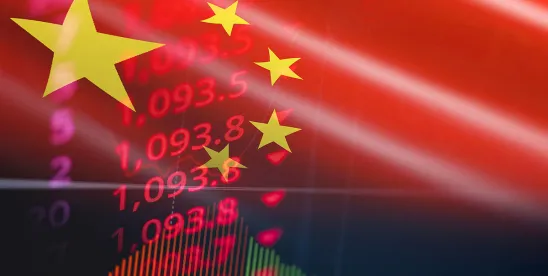Highlights
-
The Biden administration amended the prior Trump era policies toward Chinese companies in Executive Order 14032
-
The Biden order increased the scope of Chinese companies that will be sanctioned, but also created clearer guidelines on which companies actually can be sanctioned
-
Challenges by Chinese companies to the Trump order were successful and these challenges are anticipated to persist through the Biden order
The Biden administration’s Executive Order issued this summer, “Addressing the Threat from Securities Investments that Finance Certain Companies of the People’s Republic of China,” amended the prior Trump era policies toward Chinese companies. The order, Executive Order 14032, increased the scope of Chinese companies that could be sanctioned and created clearer guidelines for which companies can actually be sanctioned.
In addition, challenges by Chinese companies to the Trump era policies have been successful and these types of challenges are anticipated to persist through EO 14032.
President Trump issued an executive order – EO 13959 – to prevent U.S. persons from supporting the Chinese defense sector. In that order, the Department of Defense (DOD) was mandated to create a list of companies that were identified as “Communist Chinese Military Companies” (CCMCs). President Biden’s new order alters Trump’s sanctions against publicly traded securities linked to so-called CCMCs. It also aims to prevent U.S. persons from supporting the Chinese defense sector and Chinese technology surveillance firms.
Specifically, EO 14032 expands the prior order and virtually eliminates its progeny.
Here is a summary of the Biden order’s key amendments:
-
Extends the remit of the sanctions to a broader category of Chinese companies by including any “threat posed by its involvement in…intelligence, and security research and development programs”
-
Provides that the U.S. Treasury Department’s Office of Foreign Assets Control (OFAC) will now create its own list of companies and those “Chinese Military-Industrial Complex Companies” (CMICs) that can be sanctioned has expanded to 59
-
Extends the scope to include “the development or use of Chinese surveillance technology”
Whereas, the EO 13959, under President Trump, included amendments such as:
-
Prevented trade with entities that the DOD deemed as CCMCs based on their ties to China’s military sector
-
Relied on the DOD’s Section 1237 list, which lists 35 Chinese companies as CCMCs
The Biden order clarified the list of sanctioned Chinese entities, specifically addressing that the entities enumerated in the Trump order will no longer be automatically sanctioned. Furthermore, the Biden order rejects and replaces the ambiguous definition for “Publicly Traded Securities” to be consistent with the definition used by the Securities Exchange Act of 1934, such that those securities will now only be sanctioned if they are an exact name match to the entities designated in OFAC’s list.
Two Chinese companies, Luokung Technology Corporation and Xiaomi Corporation, successfully appealed their inclusion within the Trump order list, citing lack of due process and that the DOD had not sufficiently linked them to the military sector. Although the current Biden order has sought to address the issues that were present in the Trump order, it does not tackle the foregoing shortcomings that the U.S. Court of Appeals for the Federal District identified in Xiaomi Corporation v. U.S. Department of Defense et al. and Luokung Technology Corp. et al. v. U.S. Department of Defense et al. For example, the courts found that the government violated the companies’ due process rights by not giving them an opportunity to challenge the designations, which are harmful to their reputation. Thus, it is likely that there will be similar opposition filings to the Biden order, if OFAC does not provide sufficient evidence to link the sanctioned Chinese companies to the military sector or to the development or use of Chinese surveillance technology.
By issuing EO 14032, the Biden administration aimed to lessen ambiguity in the United States’ relationship with Chinese businesses. The order cuts down on arbitrary enforcement of economic sanctions on Chinese companies by providing that the entities’ names on OFAC’s list must exactly match the names of the entities being sanctioned. However, Chinese and American businesses should consider staying up to date with OFAC’s list of sanctioned entities and be wary about their dealings with sanctioned entities or the exporting of restricted items from the U.S.
The latest lists of sanctioned entities can be viewed via the following resources:







 />i
/>i

